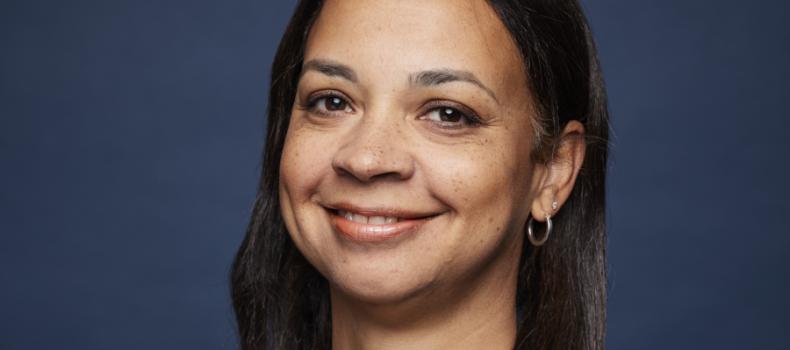Camille Beckette Warner, PhD (GRS ’97, ’02, sociology), first arrived on Case Western Reserve University’s campus 30 years ago as a doctoral student planning to study medical sociology. Since then she’s done everything from research to project management to teaching—with common throughlines of health equity and social justice as guiding elements of her work.
In July 2022, Warner took on her latest role at Case Western Reserve: associate dean of diversity, equity and inclusion (DEI) at Frances Payne Bolton School of Nursing, where nearly half of undergraduate, graduate and certificate students identify as people of color. Forefront recently sat down with Warner to talk about her new endeavor, which comes at a critical time for DEI in educational institutions.
Q: You’re not a nurse, but you are uniquely qualified for this work. What about your background led you to this role?
A: I’m a medical sociologist, but the areas I have been involved with in terms of my teaching, scholarship and service have been around equity and health, inequalities, and social justice. I’ve taught several courses to the whole spectrum, from undergraduates to doctoral students—some in health sciences who were interested in the delivery and social dimensions of healthcare. But my service has always been focused on social justice issues. So when I say I’ve been doing this work for a long time, I’ve been doing this work for a long time! But this is the first opportunity in which I’m able to do so in a formal position. And that’s very exciting for me.
Q: You hit the ground running last summer. Can you describe some of the initiatives you’re working on right now?
A: We are in the process of aligning our curriculum with the new competencies identified by the American Association of Colleges of Nursing, and DEI is one of the sub-competencies that all nursing schools must meet. I’ve been helping review courses, making sure DEI is threaded through our curriculum. And by that, I mean not only the inclusive practices of faculty, but also the activities, the assignments, the textbooks—these are things we know our students are really craving.
Q: DEI efforts have been a topic of discussion in statehouses across the country as of late—and in some cases coming under fire. How is that impacting your work?
A: What’s happening nationwide in terms of attacks on the work of DEI have been discouraging for some. But that’s not going to deter me. If it’s in your heart, and if you believe hate is not something that you’re born with and it’s something you actually learn, then you can unlearn it, too. We have to be more intentional and purposeful—more visible. We have to work harder. It’s not easy, but this work is everybody’s work.
This article was published in the Summer 2023 issue of Forefront Magazine. To view the digital issue and other stories, visit https://case.edu/nursing/news-events/forefront-magazine.


